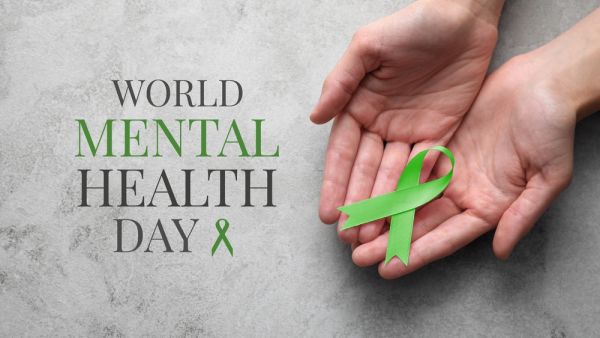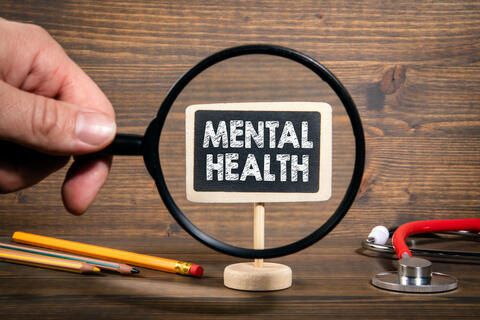In a time when hustle culture is glamorized and perished, so many of us are left feeling stressed, drained, and not enough. From one end there is the constant exposure to the filtered lives of others and then comes the urge to push ourselves to meet society’s unrealistic expectations.
Almost like we are living in a constant state of stress, anxiety, and fear.
And even though many are not aware that this is not living, we still do things that bring us stress and leave us feeling empty and unfulfilled. And so our mental health suffers, and so do we.
But the reality of things is that stress and life challenges are not going anywhere, but the key is to learn and even unlearn things that can help us cope and take care of our mental well-being.
Here are 8 things you can start doing to take better care of your mental well-being:
1. Move, move, and move
Not only is physical exercise healthy for our physical well being, but it is also essential for our mental wellbeing. Research has even shown that exercise can reduce mental illnesses like anxiety and depression, and help improve self-esteem and cognitive function.
Our minds and bodies are really one, and taking care of one means you have to take care of the other.
Because at the end of the day, well-being includes both physical and mental well-being.
2. Eat your veggies and stay hydrated!
As much as I hate to say it, the food we eat plays a role in how we feel.
That is why it is important to ensure you have a nutrition-rich diet that will make your brain happy!
It is also crucial that you drink plenty of water.
At the end of the day, our body and mind need their own fuel to keep going!
3. Rest when you need
No, sleep and rest are not for the weak! Sleep is necessary to allow our bodies and mind to rest and recharge. When we fail to give ourselves the sleep we need, we are overworking our bodies and mind.
We need to learn how to listen to our bodies and honor what they tell us. Taking a rest is essential to recharge and improve your mental health.
4. Talk to someone you trust
A huge aspect of getting better involves speaking up about the things that hurt. Reaching out to someone you trust and confiding in them can help alleviate stress and give you the support you need.
There is a reason talk therapy is a widely used therapy approach. It’s because talking and decluttering your mind can make you feel more at ease.
5. Spend time with the right people
So many of us spend time with people who leave us feeling drained and on edge, and yet wonder why our mental health suffers.
The answer is simple, the people you spend time with have a significant impact on how you feel. Therefore, spending time with people who are genuine, authentic, and healthy for your mind is essential for your mental well-being.
We are social creatures and we all need meaningful connections, however, it is pivotal that we focus on developing such relationships with people who are good for our mental health.
6. Do things that bring you joy
One of my friends once told me that she has her own “sparks of joy” that she turns to whenever she is having a difficult time.
This made me realize that sometimes things that bring us the most joy can be simple things that are within our reach, and all we have to do is just look and let them in.
Because little things are not little, they are the things that matter the most.
Take notes of things that bring you joy, whether big or small, take notes of them. By doing so, you will have your own sparks of joy that you can turn to whenever you need to.
7. Express yourself
Bottling things up will eventually cause more harm than good. It is important that you learn how to express your feelings and thoughts. Whether these are happy thoughts and feelings or not, expressing yourself is an important building block in learning how to communicate with yourself and others.
If you are not a big fan of communication, you can opt to write down your thoughts and feelings. The idea is to give your mind a little breather by taking out all your thoughts and putting them somewhere else.
8. Seek professional help when needed
There is no shame in asking for help. And if you feel like you need the support of a professional then it is imperative that you ask for it. Sometimes all we need is a stranger to listen to us and give us a little bit of guidance.
There is absolutely no shame in asking for help.
Professional help is here to help anyone and everyone! And the sooner you reach out and ask for help the sooner you will start seeing improvements in your mental health.
At the end of the day, one of the main prerequisites to taking care of our mental health is normalizing the conversation around it. So many people feel ashamed of asking for help or doing things that can improve their mental health simply because of the way society views mental health. That is why it is instrumental that the stigma around mental health and illness is diminished.
Happy Mental Health Day, may you keep taking care of your mental health in real and shame-free ways!
Stigma and taboo often prevents communities talking openly about mental health problems. #WorldMentalHealthDay is a reminder that we must make it OK #ForEveryChild and young person to talk about mental health. https://t.co/5jUUNYU2U4
— Catherine Russell (@unicefchief) October 10, 2019









